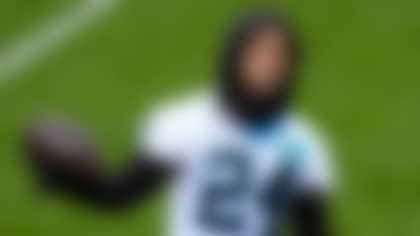The Kansas City Chiefs contemplating using Justin Reid as a kickoff specialist has the defensive back thinking about elongating his career.
The 27-year-old, entering his seventh season, told the " podcast this week that being a specialist could allow him to hang around the league longer than otherwise.
"We might have added some time to my career. You might've extended my show a couple (of) years," Reid said, . "The earning window is huge with this. When I'm done being the starting guy on safety, I can turn into that rotational third safety and also be a kickoff specialist."
Reid's comment underscores the vast unknown regarding the NFL's new kickoff rules. The league could wind up adding a fourth specialist to the game.
Chiefs special teams coordinator Dave Toub said in May that he'd consider using Reid as a kickoff specialist, anticipating that position having to tackle more than in the past -- and perhaps more than he'd want Harrison Butker to tackle. Reid noted that having an extra natural tackler on the field could pay dividends.
"The amount of plays that can be broken. When you have special talents like a Tyreek (Hill) or some of these other explosive returners, there's an open gap somewhere on that field," Reid said. "They have 10 blockers, and we have 10 attackers, but everybody has two shoulders, so there's an open gap somewhere. And the advantage for us is that if I'm doing the job, which is what we're planning on doing, then I can fill that last gap, so it makes it a little bit easier that nobody needs to win two gaps. Of course, you're going to try and always arm over and win across at late, but it's a little bit more comfortable knowing that you are responsible for one gap instead of every person on the field trying to two-gap and hoping the returner doesn't find that last open gap."
Reid added that the change could completely alter the kickoff trajectory, leading to a more line-drive approach.
"The whole dynamic of hang time has completely flipped," Reid said. "Normally, on kickoff, kickers are great at trying to have a four-second hang time to give guys time to get down the field, but now you're trying to keep the ball as low as possible while still in play. You're trying to get it to hit the ground because when the ball hits the ground, that's now your hang time. Guys can take off at that point and however much time it takes the returner to pick up the ball, that's them wasting time.
"So that whole dynamic has just completely flipped on his head. It's a different kick, it's a different style, it's a lot more aggressive trying to hit the low ball. ... So I think that the style of kicks you see from the get-go will just be different."
In a sense, the new kickoff rules are the Wild West. No one knows exactly how teams will approach the change. Clubs that concoct the best strategies out of the gate will have a distinct advantage as others play catch-up. The first real public testing ground will be preseason action, but don't expect many secrets to be laid out at that time; just probes to see what might work.












